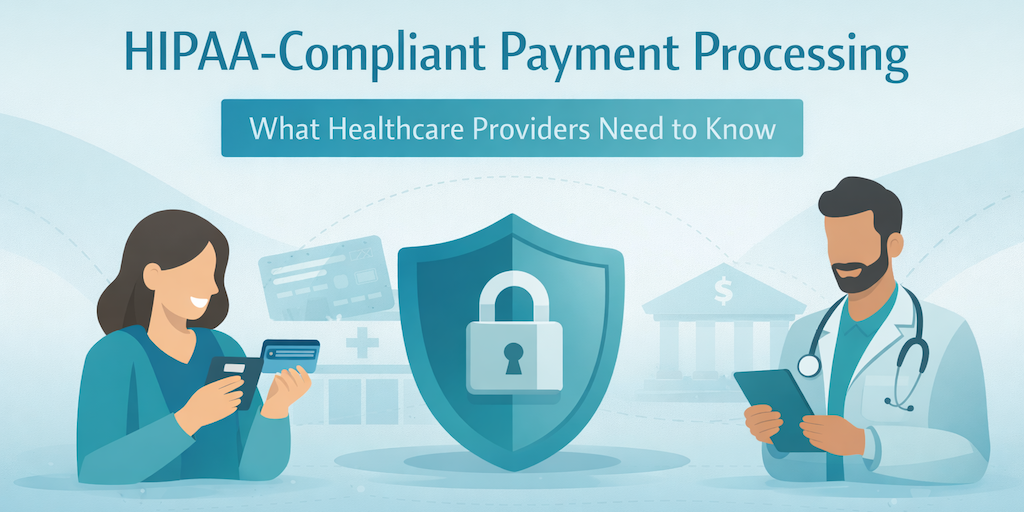Is Replit HIPAA compliant?
Replit is a favorite among devs who value speed and simplicity—but when you’re building healthcare apps, “move fast” can’t come at the cost of compliance. If you’ve ever wondered whether Replit is HIPAA-compliant, the answer isn’t just “no”—it’s “not even close.”
This blog unpacks exactly where the gaps are, what’s at stake for healthcare builders, and how to move from weekend prototype to production without risking a federal audit. If you’re building with PHI in mind, you’ll want to read this before you commit a single line of code to Replit.
Key Takeaways
1. Replit isn’t HIPAA-compliant—and doesn’t plan to be.
Despite having strong general security practices (SOC 2, TLS, etc.), Replit offers no Business Associate Agreement and lacks core HIPAA requirements like audit logs, breach alerts, and PHI-safe isolation.
2. Workarounds are fragile and risky.
Some developers try offloading PHI to HIPAA-compliant backends while coding UI on Replit, but one log slip or cached request can put you out of compliance. It’s a high-risk juggling act.
3. Purpose-built alternatives accelerate compliance and scale.
Specode’s healthcare AI builder turns plain-English prompts into live intake, scheduling, telehealth, and billing flows on HIPAA-ready rails (BAAs, audit logs, RBAC) with EHR/eRx/labs integrations and full code ownership—so you launch in weeks, not months, without vendor lock-in.
Replit’s Allure for Hackers vs. the Clinical Reality of HIPAA
Let’s be honest: if you’re leading product at a health-tech startup or moonlighting as a clinician-founder with a Python itch, Replit looks like a dream. Instant dev environment. Live collaboration. AI-assisted coding. No local setup. It’s catnip for fast iteration.

But in healthcare, “fast” has a frenemy: compliance.
Here’s the trap. Replit is wildly popular with indie devs, students, and even startup hackers building MVPs at warp speed. The vibe? Spin up a prototype in a weekend and demo it Monday. And when you’re under pressure to impress investors or validate a concept, that’s hard to resist.
But the second you touch real patient data—even a mockup that leaks into production—you’re in HIPAA territory. That means audit trails, breach notifications, data segregation, formal risk assessments, and yes, a Business Associate Agreement (BAA). Skip any of these, and you’re not just out of spec—you’re out of compliance, and potentially out of business.
This blog is for anyone who’s asked, “Can I build my healthcare app on Replit?” The short answer: for prototyping, yes. For production with PHI? Not unless you’re feeling lucky—and legally invincible. Let’s unpack why.
Replit’s Official Stance on HIPAA & BAAs
Spoiler: Replit doesn’t talk about HIPAA. At all.
No BAA. No mention of HIPAA anywhere in their Trust Center or Terms of Service. While they proudly showcase SOC 2 Type 2 compliance and general security practices, that’s not the same as being HIPAA-ready. And in the world of U.S. healthcare, if a vendor won’t sign a BAA, you’re legally barred from using them for any app that handles Protected Health Information (PHI). Full stop.
Replit runs on Google Cloud, which is HIPAA-eligible—but that doesn’t make Replit HIPAA-compliant. GCP signs a BAA with Replit, not with you. That chain of trust stops cold unless Replit extends the BAA downstream—and it doesn’t. This single omission is effectively a deal-breaker.
The silence is telling. If Replit wanted to attract healthcare workloads, they’d advertise compliance like AWS or GCP do. So while Replit is secure in a general-purpose way, it’s officially not suitable for regulated health data. Any PHI exposure would be a direct HIPAA violation, with the legal risk on your shoulders, not theirs.
Where Replit Passes Basic Security—and Where It Fails HIPAA Tests
Let’s give credit where it’s due: Replit takes general security seriously. Data is encrypted in transit (TLS) and at rest (AES-256 via Google Cloud). They’ve got SOC 2 Type 2 attestation. A dedicated security team. Regular audits. So far, so good—if you’re building a school project or a fintech prototype.

But for HIPAA? Not even close.
Here’s what’s missing:
- No audit logging transparency: Replit doesn’t give end users access to logs that show who accessed PHI, when, or why—HIPAA’s 45 CFR §164.312(b) mandates this.
- No breach notification mechanism documented for PHI incidents.
- No HIPAA-grade data segregation: Replit is multi-tenant. While it logically separates user environments, it’s still shared infrastructure. One misconfig, and you’re in compliance hell.
- No control over data disposal: Delete a project? There’s no assurance that PHI is scrubbed from backups. That’s another HIPAA violation waiting to happen.
And the kicker: no risk assessment disclosures. HIPAA requires formal evaluations of systems and safeguards. There’s no evidence Replit has even tried to map its stack to HIPAA requirements.
So yes—Replit is secure. But “secure” ≠ “compliant.”
Workarounds & “Prototype-Only” Caveats
Some developers try to thread the needle: use Replit for UI or logic while offloading PHI to a separate HIPAA-ready backend like AWS under a signed BAA. Technically possible? Yes. Practically safe? Barely.
Example: a mental health app routed data to an AWS backend while using Replit just for front-end code. As long as no PHI touched Replit’s logs, containers, or persistent storage—great. But that’s like juggling knives blindfolded: one misstep and you’ve got a breach.
The moment a patient’s name gets logged during an API test, or a request body containing PHI hits Replit’s debugger, you’ve crossed the line. There’s no easy rollback from that.

So if you’re set on using Replit, do this:
- Stick to synthetic or de-identified data.
- Keep all PHI completely out of the IDE.
- Be ready to migrate off Replit the moment you go beyond mockups.
Because Replit is great for proving ideas—but terrible for proving compliance.
Decision Matrix: When Replit Is Fine, When It’s a Lawsuit Waiting to Happen
Let’s not pretend every dev decision needs a 20-page compliance memo. Sometimes Replit is the right call.
Here’s the breakdown:
✅ Go ahead with Replit if:
- You’re building a proof-of-concept or hackathon project.
- Your app uses only dummy or de-identified data.
- The goal is to demo logic or UI flows, not handle real users.
- You need to iterate fast and cheap, and you’re not touching PHI.
Replit shines in this zone. It’s fast, free-ish, and frictionless. Great for testing ideas or getting internal buy-in.
🚫 Avoid Replit if:
- You’re planning to process, store, or transmit PHI—even just one patient record.
- You need to integrate with EHRs or FHIR APIs.
- You’re aiming to launch a real product, not just a prototype.
- You expect to scale into production with HIPAA oversight.
So if you’re still on Replit by the time you’re talking about patient onboarding, appointment scheduling, or EMR integration—you’re already late to the exit ramp.
Fast-Track Alternatives
If you’re ready to graduate from Replit but not keen on rebuilding from scratch, you’ve got a few on-ramps that won’t cost your legal team their weekend.
Option 1: The Cloud Giants with BAAs
- AWS, Google Cloud, and Azure all offer HIPAA-eligible services and will sign BAAs.
- But “HIPAA-eligible” ≠ “plug and play”—you’re still responsible for configuring everything correctly (IAM, logging, backups, encryption, breach alerts, etc.).
- You’ll also need to build or plug in your app’s compliance layer (access controls, audit trails, PHI-safe frontends).
Bottom line: flexible, but DIY-heavy. Good if you have a strong devops team and time.

Option 2: HIPAA-Focused Platforms
- Some platforms specialize in doing the compliance heavy lifting for you—prebuilt hosting, logging, access control, and BAA all included.
- These aren’t generic cloud services. They’re purpose-built for healthcare apps: think FHIR-ready backends, clinical workflows, secure comms.
- You trade a bit of flexibility for a faster path to launch and audit readiness.
This is where platforms like Specode come in—purpose-built to keep velocity high without sacrificing compliance. The key is not just security—it’s packaging compliance into your build velocity.
Specode Shortcut: HIPAA-Ready Modules on Day 1
If Replit got you to MVP, Specode gets you to production—without rewriting your app from the ground up.
Specode is what Replit would be if it grew up, got a BAA, and learned how to talk to Epic.
We built Specode after helping dozens of startups and hospitals run in circles trying to “compliance-wash” their prototypes. The pattern was always the same: great idea, fast dev, then the brakes screech when PHI enters the chat. So we took what every healthtech founder kept rebuilding—scheduling, eRx, AI-assisted charting, EHR connectors—and packaged it as modular, HIPAA-compliant components. Available from day one.
What you get with Specode:
- 🔒 Built-in HIPAA compliance—no guesswork or legal fire drills
- 🧩 Reusable components for telehealth, EMR, labs, messaging, eRx, and more
- ⚙️ Full-code ownership, no platform lock-in
- 🚀 AI-assisted development to reduce time-to-launch by up to 10x
Healthcare AI Builder: From Prompt to Live, On HIPAA Rails
Describe what you want—intake → scheduling → telehealth → documentation → billing—and see it appear with an instant preview. You start on healthcare foundations (roles, consent, audit), connect your own data early so screens and rules reflect real patients, providers, and payers, and theme it end-to-end. Full code ownership, zero lock-in.
- Prompt → preview: build from plain English; iterate in minutes.
- Integration switchboard: EHR/EMR, eRx/pharmacy, labs, insurance, payments/subscriptions, and custom APIs.
- Don’t rebuild what exists: modify packaged intake, messaging, scheduling; add only what’s net-new.
- Guardrails: Change Log restore and role-scoped testing keep fast iteration safe.
- Your team or ours: mix AI-built assembly with custom code; Custom tier adds managed help and purpose-built AI agents.
We’ve helped launch everything from mental health coaching apps with mood tracking and journaling, to national-scale care coordination platforms and ePharma storefronts with automated workflows. If it needs to scale and stay compliant, we’ve probably built it—or a piece of it.
Prototype anywhere. But when you’re ready to go live with PHI, start here.
👉 Build by chat, not tickets — try the AI builder free.
Frequently asked questions
No. Replit does not offer a BAA and does not meet HIPAA technical or legal requirements for handling PHI.
Yes, but tread carefully. Stick to de-identified data, avoid logging sensitive info, and be ready to migrate once real patients are involved.
It’s not their focus. Replit is optimized for rapid dev and education—not regulated enterprise-grade healthcare apps.
Start with a platform like Specode that includes HIPAA compliance, reusable components, and production-ready infrastructure.
Only partly. They offer BAAs, but you’re still responsible for compliance setup, PHI-safe architecture, and app-layer controls.









